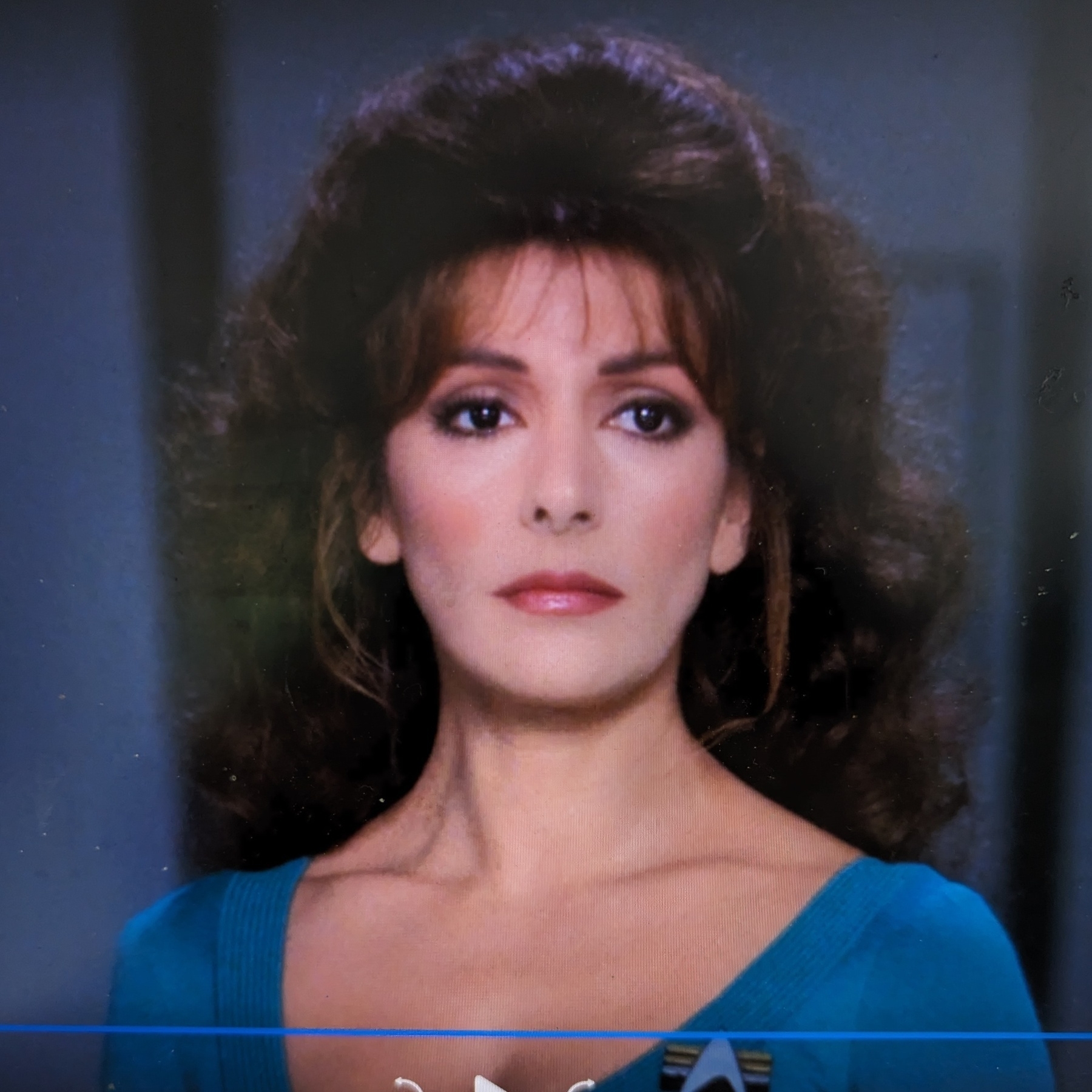I love that they were able to let Worf’s skin be the same color as Michael Dorn’s.
Posts in "Star Trek"
🖖🏻 Did I just revise my LinkedIn bio so it starts with a Star Trek quote? Yes, yes I did, and the whole thing is very professional.
I should really stick with my watch-mostly-Star-Trek plan. 🖖🏻
Apparently my idea for what counts as the prettiest hair is bound to the year 1993. This soft hair on Deanna Troi, with thin bangs, the front pulled up, tendrils in drint of the ears, and big loose curls in the back resonates for me as true beauty. (ST:TNG 7x11 Parallels, airdate 11/29/93) 🖖🏻

Picard: I feel as if I’m in the Scottish Highlands.
Colonist: The cornerstone of every building was taken from Edinburgh, Glasgow, Aberdeen…
Me, A Jerk: Those aren’t in the highlands.
🖖🏻
Starting Season 7 in my rewatch of Star Trek: The Next Generation, finding myself very glad there’s so much other Trek media including TNG tie-ins so I basically never have to say goodbye to my Enterprise D friends. 🖖🏻📺
🖖🏻📺
Data: *has a personal problem* *does extensive research* Captain Picard, I have done all the research but I do not have the answer to my problem.
Picard: What do you think about the problem, though?
Data: *blinks*
Just another reason I identify with Data.
🖖🏻 Brent Spiner is my hero.
📺💬🖖🏻 “I can’t say being equal parts irritating and endearing isn’t slightly familiar.” Picard 3x06, The Bounty. IT ME.
📺🖖🏻 When I watch TNG or Picard, Data is Data, but anyone else Brent Spiner plays is Brent Spiner doing an awesome job. But Data is, viscerally for me, Not A Character Brent Spiner Plays, but instead A Guy (an android guy but still).